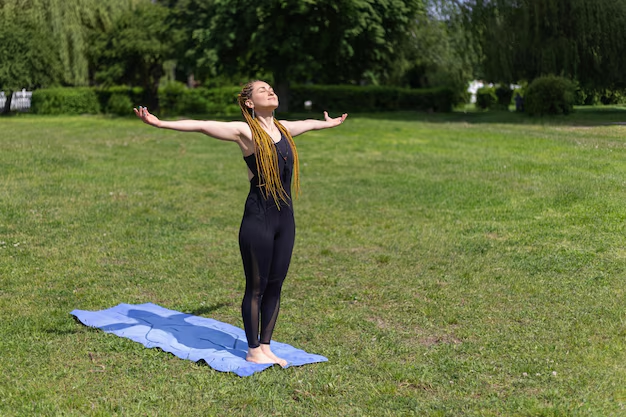Discover the Power of Exercise: Your Path to Stress Relief
In our fast-paced world, stress is often seen as an inevitable part of life. Balancing work, family commitments, and personal time can be challenging, sometimes leaving us feeling overwhelmed. However, there's an effective tool at our disposal that many often overlook: exercise.
The Science Behind Exercise and Stress
How Exercise Reduces Stress Hormones
When you exercise, your body releases a variety of chemicals that can have a profound effect on stress levels. Endorphins, often referred to as "feel-good" hormones, are released during physical activity, leading to an enhanced mood. These biochemical changes help reduce the production of stress hormones like cortisol, which contributes to a more relaxed state.
The Role of Fitness in Brain Health
Regular physical activity has been shown to boost the production of neurotransmitters such as serotonin and dopamine. These chemicals are vital for maintaining mental health and reducing stress. Exercise also improves brain plasticity, enhancing your ability to cope with stress mentally.
Types of Exercise for Stress Relief
Aerobic Exercise: The Heart of Stress Reduction
Aerobic exercises such as walking, jogging, and cycling are known for their ability to improve cardiovascular health. Beyond physical benefits, these activities act as powerful stress reducers. Just 30 minutes a day can lead to noticeable changes in mood and anxiety levels. Plus, they are accessible—almost anyone can incorporate a brisk walk or a light jog into their daily routine.
Strength Training: Building More Than Just Muscles
Strength training isn't just about muscles; it's also a fantastic way to alleviate stress. Lifting weights can increase endorphin production and help focus your mind away from stressors. Engaging in a strength-training routine just a few times a week can significantly reduce stress levels and improve overall mood.
Mind-Body Practices: Yoga and Tai Chi
Mind-body exercises like yoga and tai chi offer a unique combination of physical activity and mental focus. These practices promote mindfulness, encouraging you to stay present and release tension from both mind and body. Incorporating yoga or tai chi into your routine can aid relaxation, improve sleep, and help you manage stress more effectively.
High-Intensity Interval Training (HIIT): Quick and Effective
For those with a busy schedule, HIIT workouts can provide maximum benefits in a short timeframe. These workouts combine bursts of intense activity with rest periods, boosting cardiovascular fitness and stress relief through endorphin release. HIIT is efficient and perfect for anyone who feels short on time but needs to manage stress effectively.
Incorporating Exercise into Your Daily Life
Finding Motivation and Setting Goals
Motivation might be the primary obstacle to starting a regular exercise routine. Setting achievable goals can help maintain enthusiasm. Start with realistic and straightforward objectives, such as a 10-minute walk daily. Gradually increase intensity and duration to sustain motivation and engagement.
Making the Most of Short Workouts
Even if you're pressed for time, incorporating short bursts of activity can help manage stress. A few minutes of stretching, stair climbing, or a quick jog can elevate your heart rate and release tension. Investing little time throughout your day can make a significant difference in stress levels.
The Social Aspect of Exercise
Exercising with others can enhance the stress-reducing effects of physical activity. Joining a class, club, or finding a workout buddy can increase motivation and also provide a social support system. Social interactions during exercise promote feelings of connection and well-being, reducing stress further.
Overcoming Barriers to Exercise
Addressing Physical Limitations and Modifications
Physical limitations can be commonplace, but they don’t have to be barriers to stress relief through exercise. Finding suitable activities like swimming or chair yoga can make a significant difference. The key is to modify exercises to fit your personal needs and abilities.
Time Management: Fitting Exercise into Busy Lifestyles
Juggling professional and personal responsibilities might seem like a deterrent to regular physical activity. However, integrating small, consistent efforts like walking meetings or family exercise sessions can ensure that exercise becomes a seamless part of your daily routine.
Summary: Key Takeaways for Stress-Reducing Exercise 🏃♀️💪🧘♂️
- Mix It Up: Incorporate a variety of exercises like aerobic, strength, and mind-body workouts to keep things interesting and effective.
- Start Small: Begin with achievable goals and gradually increase intensity and duration.
- Stay Social: Exercise with friends or groups to enhance motivation and enjoyment.
- Adapt and Modify: Find exercises that suit your physical needs and capabilities.
- Consistent Efforts: Even short bursts of activity throughout the day can significantly reduce stress.
The Holistic Benefits of Exercise
Physical Health Meets Mental Wellness
Beyond stress reduction, regular exercise provides myriad benefits. It enhances cardiovascular health, aids in weight management, improves sleep, and boosts energy levels. All of these contribute to a greater sense of overall well-being and resilience against stress.
Building a Balanced Lifestyle
Exercise can be a cornerstone of a balanced, healthy lifestyle, complementing other wellness practices such as meditation, healthy eating, and adequate sleep. The synergy between these components leads to a higher quality of life and stress management.
Embracing a Lifelong Commitment to Health
The journey towards stress relief through exercise is a personalized path that evolves with your needs and preferences. By integrating physical activity into your life thoughtfully and consistently, you empower yourself to manage stress not just today, but over a lifetime. Remember, every step taken towards incorporating exercise is a step away from stress and a step closer to a healthier, happier you.

Related Topics
- Affordable Fitness Options
- Affordable Healthcare Options
- Affordable Therapy Options
- Best Apps For Meditation
- Best Online Therapy Platforms
- Best Telemedicine Services
- Dental Care Savings Tips
- Health Screenings You Need By Age
- How To Appeal Denied Claims
- How To Find a Primary Care Doctor
- How To Lower Medical Bills
- Medical Debt Repayment Strategies
- Mental Health Coverage Explained
- Nutrition Basics For Better Health
- Prescription Discount Programs
